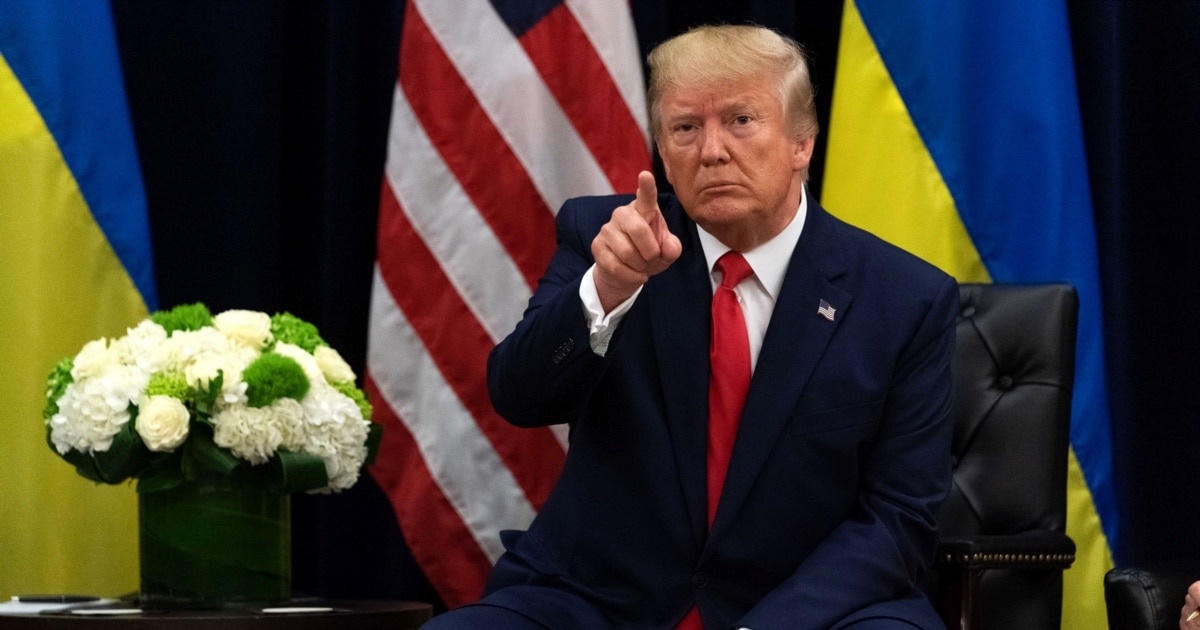Kyiv, Moscow, and much of the rest of the world are awaiting a planned “major statement” on the Russia-Ukraine conflict by US President Donald Trump amid a flurry of diplomatic activity from Washington to Kyiv.
Trump’s statement, expected on July 14 — although no official time or venue has been set — would come amid a relative lull in Russian attacks on Ukraine following record-high air assaults of the previous weeks.
“I think I’ll have a major statement to make on Russia on Monday,” Trump told NBC last week without elaborating.
Also on the diplomatic front, NATO chief Mark Rutte is scheduled to meet with Trump in the upcoming week after Trump said Washington plans to sell NATO allies weapons that can then passed on to Ukraine, following years of statements by Trump indicating a reluctance to provide Kyiv with additional arms.
Rutte is slated to be in Washington on July 14-15 and is also scheduled to meet with Secretary of State Marco Rubio, Defense Secretary Pete Hegseth, and members of Congress, according to a statement by the Western military alliance on July 13.
Separately, Trump’s special envoy to Ukraine, Keith Kellogg, is scheduled to visit Ukraine starting on July 14.
The Ukrainian Foreign Ministry confirmed that Kellogg would visit but did not release details. Specific itineraries for such visits are often kept secret for security reasons.
One of Trump’s strongest allies, Republican Senator Lindsey Graham, added credence to speculation that Trump could increase the supply of weaponry to Kyiv, telling CBS television that “in the coming days, you’ll see weapons flowing at a record level to help Ukraine defend themselves.”
“One of the biggest miscalculations [Russian President Vladimir] Putin has made is to play Trump. And you just watch, in the coming days and weeks, there’s going to be a massive effort to get Putin to the table,” Graham said.
“This is truly a sledgehammer available to President Trump to end this war,” said Graham.
Democratic Senator Richard Blumenthal, who appeared with Graham during the CBS interview, said there is also growing bipartisan consensus in Congress and among European allies regarding the tapping of some of the $300 billion in Russian assets frozen by G7 countries early in the war to aid Kyiv.
“It’s time to do it,” Blumenthal said.
After earlier being accused by many of going easy on Russia despite its unprovoked, full-scale invasion of Ukraine, Trump has grown increasingly critical of Moscow in recent weeks, as it has rebuffed his efforts to secure a cease-fire.
“We get a lot of bullshit from Putin. It’s very nice most of the time but meaningless,” Trump — who has spoken to Putin by phone six times since his inauguration on January 20 — said on July 8.
Trump’s sharper criticism of Putin is notable because he has a history of making positive and flattering comments about the Russian leader. Trump has called him “smart” and last year said he had a “very good relationship” with Putin. Trump had hinted that he would be able to leverage that relationship to secure a cease-fire.
Russia’s invasion of Ukraine, launched on February 24, 2022, is the biggest and deadliest war in Europe since World War II. Russian casualties are expected to top 1 million this summer while Ukraine has lost around 400,000, according to a report last month by the Washington-based Center for Strategic and International Studies.
Since taking office, Trump has made ending Russia’s invasion of Ukraine his top foreign policy priority.
Before an apparent lull over the past two days, Russia on July 12 hammered Ukrainian cities with a barrage of drone, missile, bomb, and artillery attacks, killing at least nine people and wounding dozens of others, Ukrainian officials.
Russia has stepped up its missile and drone attacks this year, with numbers increasing every month since December, according to a monitoring group, and has intensified barrages on Kyiv and other cities in recent weeks while also pressing forward on the front lines — albeit with massive casualties among its troops.
“The pace of Russia’s aerial strikes demands swift decisions, and it can be curbed now by sanctions,” Ukrainian President Volodymyr Zelenskyy said on Telegram on July 12.
With reporting by RFE/RL’s Ukrainian Service, Reuters, and AP
